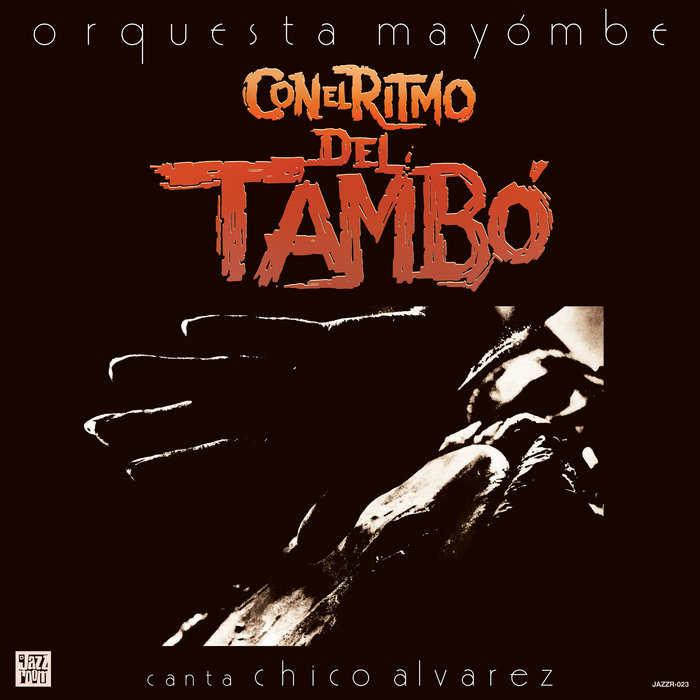
ESA BRUJERIA – Orquesta Mayombe
this blog is GROOVY – check out great Soul, Funk, Jazz, Hip Hop, Bass, Breaks , Reggae, House n many more TUNES
Hey there, music lovers! Get ready to groove as we dive into the vibrant world of Fania Records and the sizzling genre known as salsa. This is not just a history lesson; it’s a funky expedition packed with rhythms, colors, and some downright funny tales!
Fania Records was born in 1964 in New York City, where Latin jazz met an eclectic mix of musical genres. Founded by Jerry Masucci and Johnny Pacheco, Fania became the heart and soul of salsa music. It’s like that secret sauce that takes your favorite dish from bland to WOW!
Now let’s rewind a bit—salsa wasn’t always called “salsa.” In fact, what we now know as salsa started off as various forms of Afro-Caribbean music: meringue, son cubano, boogaloo… you name it! It was sort of like a musical melting pot where beat after beat stirred together into something fresh.
In those days, people were grooving to tunes from artists who mixed Cuban rhythms with Puerto Rican melodies and New York vibes. The catchy name “salsa” caught on during the ’70s when things really started heating up.
You might have heard names like Héctor Lavoe, Willie Colón, or Celía Cruz floating around. These legends are at the core of Fania’s legacy.
Héctor Lavoe had one incredible voice that could make even your grandma get up and dance (even if she swore she didn’t dance anymore). Known for his flamboyant style—tight pants and big collars—Lavoe once famously quipped about his singing: “I don’t sing; I just blow kisses!” Love him or hate him; he brought emotion into every note.
Did you know Héctor used to prank his bandmates by pretending he’d lost his voice right before concerts? He would mime being mute until they freaked out! Then he’d burst out laughing. Talk about keeping it real on stage!
Then came Celía Cruz—“La Reina de la Salsa.” With her flashy outfits (those wigs were bigger than life!) and infectious energy, she lit up stages all over the world. You couldn’t help but smile watching her perform.
Cruz loved her signature phrase “¡Azúcar!” which means sugar in Spanish. Rumor has it she once walked into a bakery just shouting “Azúcar!” And guess what? They thought it was her new hit single!
In 1971, things got wild with the creation of the Fania All-Stars—imagine superheroes but for salsa! This ensemble included several legendary musicians from across Latin America who came together for epic performances filled with jam sessions so hot they could cook an egg onstage!
Their concerts often felt less like shows and more like family reunions complete with laughter among friends—a fiesta where everyone just happened to be extremely talented musicians ready to throw down some serious rhythms.
In 1975 amidst their sold-out concert at Yankee Stadium—the first time such an event took place—they broke records faster than any home run by Babe Ruth! Their live album Live at Yankee Stadium captured this magic moment forever.
During one performance at Madison Square Garden somehow someone forgot their horn—it’s said Willie Colón skillfully improvised using a half-eaten sandwich instead! Now that’s versatility—or sheer desperation—you decide!
The salsa explosion didn’t stop at borders; it went global baby! From Tokyo clubs pulsating till dawn to Parisian streets filled with dancers twirling under streetlights—a whole new generation fell head-over-heels for these spicy beats mingled through multiple cultures worldwide… talk about unity through rhythm!
As hip-hop emerged later on blending two powerful forces created hybrids we can hear today cutting across genres bringing flavor everywhere—forbidden sounds morphing traditional roots yet still keeping true its essence makes each track uniquely delicious!
Fast forward to today: while commercial popularity fluctuates through waves cycles come alive full swing celebrating originals along fresh moves inspired by newer artists revisiting nostalgia giving rise again uplifting classic jams reminiscent kitchen parties simmering pots bubbling cheerful aromas wafting nostalgic memories huddling close dancing spicing times past present future meeting seamlessly intertwining moments joyously lived fully expressed sweetly infused artistry ceaseless continuity reassurance keeps moving onward embracing growth authenticity simmeringly super tasty shifting focus encouraging passion fiery flames reignited uniting communities alike spreading love wherever found gathering crowds sharing grooves-a-joyous ride-of-life-celebration right here always existing knows no bounds offering flavors limitless concoctions served fit-for-all ages groups leads forward eternally recycling adventures waiting share stories greet smiles continued journeys discovering more soundscapes ahead never runs dry…
So there you have it—the electrifying history behind Fania Records & Salsa Music folks everywhere carry inside them bangin’ alongside histories fun tales embroidered hearts transcending generations providing bonding friendships unmatched timelessness pure vibrant unity indeed indeed yes yes outright fantastic without end—
Keep groovin’ y’all because nothing beats dancing away worries celebrating freedom via soulful jams bursting forth inspiring every step taken brighter futures surely made possible entire cultures harmoniously woven reminding us all remember… simply enjoy life feel good repeat ’til forever ‘cause how else will we truly express ourselves?
Let’s raise those glasses loud ¡Azúcar!, shake those hips loud Florida heat breathe skies warm sunsets drift softly golden beautiful smile warmly shining bright sunshine reggae twistings lush jazzy sun-kissed evenings warmth playing strings strumming souls pouring light mixed magical melodies traveling time travel arched paths exploring labors love exuding passions wrapped tight groovy funky fiesta jamming kitchens balconies rooftops dance floors escape reality living fully lot laughing singing share earth why ever hesitate?
After all—with each pulse shared within colorful notes written down beaten drums playfully ignite laughter jubil

ESA BRUJERIA – Orquesta Mayombe